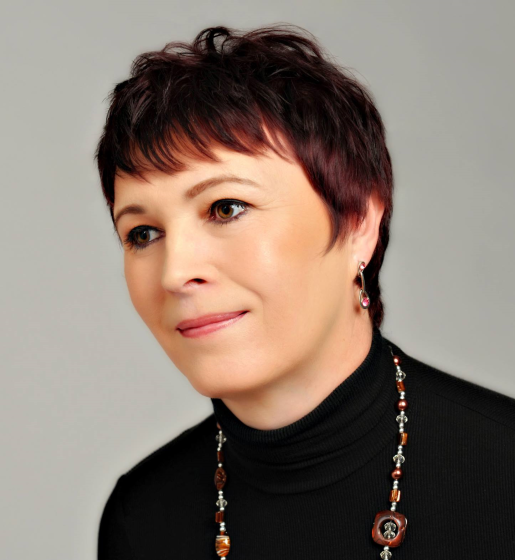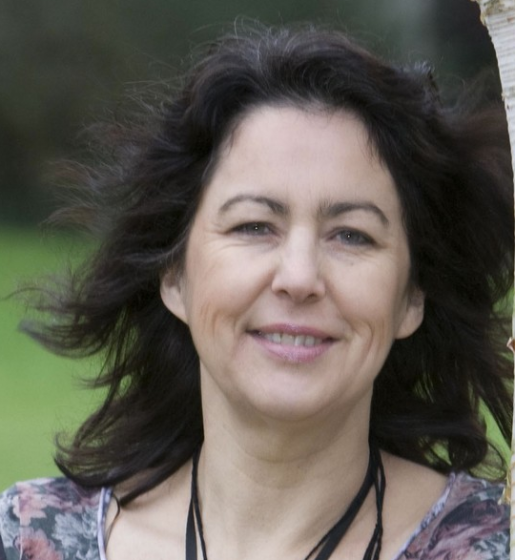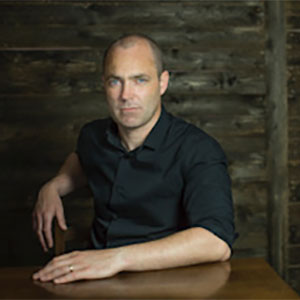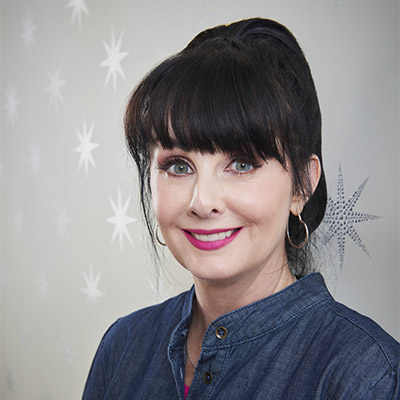DINNER AT JIM'S
I drove home on Saturday for Jim Lyttleton’s funeral. It was not, as they say in Moyhaven, a “sad” funeral. There were no tears. Jim had died in his sleep at the age of eighty-six, widowed, childless, and without companions, except for the sausage dog he lived with in his little blue house on Saint Ita’s Terrace. Not many showed up; each mourner had nearly a full pew to themselves. The priest, who’d had been shuttled in specially from a larger parish, spent the first few minutes calling the deceased “Tim” until a member of the congregation – I think it was Pat Cullen the butcher – indignantly corrected him. “I’ve never heard of a Tim Lyttleton in all my years and it’s certainly not the name of the man in that coffin there,” said Pat, trembling with rage.
I remember Jim as a slow, heavyset man in a tweed cap who seemed ill-fitted for the twenty-first century, like an obsolete Edwardian law waiting quietly to be erased from the books. He smoked a reed pipe that he emptied into a biscuit tin and had a great fondness for greyhounds. You would see him in Lonergan’s on a Saturday afternoon drinking a pint of Beamish. He wouldn’t read or make conversation but simply stare at an indistinct point between the fireplace and the door to the billiards room. Regularly he’d come out of his trance or daydream or whatever it was to ask Mick the barman for the time. This happened so often that Mick had to be precise in his answers. “Seventeen minutes after three it is now, Jim”, Mick would reply, with only the smallest hint of irritation in his voice, and Jim would nod his head and return to brooding.
One memory of Jim stands out. This was the evening he invited the entire Carroll family – that is, my parents, my younger sister Roisin, my older sister Gale, and myself – over for dinner. It was strange enough that an elderly widower with limited culinary or social resources should take it upon himself to wine and dine five people; stranger still that my family was selected for this exclusive honour. Jim was our neighbour in name only. Passing him on the road you might receive, by way of greeting, a barely perceptible bow of the head, or if his spirits were high, an affable grunt. Whenever my mother succeeded in drawing a few words out of him – even a bland comment about the rains or the tides – it was considered enough of a rarity to count as news.
So it was with great disbelief that my father announced one September afternoon that we had all been invited to Jim Lyttleton’s house for “pork chops and custard pie.” My sisters and I, who were sitting around the kitchen table doing our homework, looked at each other in onerous silence for a minute, and then exploded into laughter. My father laughed, too. And when, later on, he told my mother who would be cooking her dinner that night, she laughed the loudest of anyone.
A few hours later all five Carrolls were standing in the little front garden of 14 Saint Ita’s Terrace, a few doors down from our own home. The door scraped open and Jim’s confused squarish face took shape in the gloom. The moment we laid eyes on him there was a collective squirm of self-restraint as the urge to laugh flared up again. He had the look of someone for whom a knock on the door was a rare and anxiety-inducing event. We managed to hold it in, and my mother, leading the pack, gave him a stilted hug, thanked him for the kind invitation, and asked how he was keeping. In a soft, measured voice, quiet enough to get everyone leaning forward, he replied: “I’m keeping fine, sure. No complaints. Come in, ‘tis chilly.”
As far as dinner parties go this was an odd one. For one thing, our food was already waiting for us on the table when we arrived. Jim had even poured a helping of gravy onto each plate ahead of time. Without another word he fell into his chair and began eating. Slowly we followed his lead.
With some people, conversation is a simple thing. Subjects can be picked from the trees. With Jim, you had to go digging for them. My father asked about Jim’s retirement. The man had worked for a private transportation service in Fivemilepark, first as a coach driver, and later, in the office, as some sort of co-ordinator. He said it was treating him fine, and ate a carrot.
“You must have some stories to tell from your days as a bus driver,” my mother tried.
“Stories?” He looked deep into his steamed vegetables. “No, I wouldn’t have any ‘stories’ for you now, I’m afraid.”
While my parents racked their brains for something to talk about, I was completely engrossed in the food itself. The potatoes and veg were just about edible, but the pork was blander than a glass of water and took an age to chew. I don’t know what grudge Jim held against salt and pepper but not a grain of either had been employed in its making.
My eating in those days was on the sloppy side. Apparently a smear of gravy had stuck itself to my chin, because at one point Jim rose from his seat and moved ominously towards me while everyone else followed him with their eyes. He began to wipe the gravy off my face with his napkin.
This was too much for my father.
“That’s fine, Jim,” he said, trying to keep the anger out of his voice. “He’s eleven years old. He can do that himself.”
“Excuse me,” Jim said. “I didn’t mean… I just thought the lad could use a bit of help.”
“He can wipe his own face, Jim.”
The host, practically swollen with embarrassment, returned to his seat and focused all attention on his pork chops.
For a while after that the only sounds were cutlery scraping on plates, food being chewed and swallowed, two dogs barking at each other many gardens away.
As always, it was my mother who came to the rescue. She asked brightly about dessert. She said a little birdie had told her that custard pie was on the menu.
Jim’s eyes lit up at the invocation of the custard pie. He said it was a special recipe; he was certain it would be a hit with the Caroll family, adults and children alike.
A few minutes later the pie was produced on a large tinfoil platter. It was a beautiful object, textured and fragrant, with rich golden crusts and a spiral of cream in the centre. Gratefully we each took a piece.
“This is very nice,” my mother said. Everyone hummed in agreement, though in fact the pie was disappointing. It had a stale, acerbic flavour. Something was off about it.
“I’m glad,” said Jim. “Marie baked it herself.”
A flurry of alarmed glances were exchanged across the table. All chewing came to a halt. Jim’s wife Marie had died over two years ago.
“She made it just before she passed,” Jim explained. “It’s been sitting in the freezer ever since. I was saving it for an occasion like tonight. It’s not every day I have little ones in the house. Marie would have wanted it to be enjoyed by children. That was a great dream of hers, to bake nice things for little ones.” An immense sadness fell across his features.
Over the following days and weeks the story of our dinner at Jim’s hardened into a kind of family myth. It was a story we told each other when we needed a laugh. We were still telling it, even now, and still relishing the details: the indigestible pork chops, the pre-poured gravy, the pie baked by a dead woman.
Other aspects of that evening, subtle and elusive enough to fall through the mesh of reminiscence, came back to me now as I sat in the Church of the Assumption. The way Jim looked at me and Roisin and Gale, with intense, gleaming, vulnerable eyes that affirmed everything we said no matter how mundane; how he kept pressing tea and fizzy drinks on us while our parents’ glasses stood empty; and yes, the unspeakable look of sorrow that filled his face when he recalled Marie’s desire to bake nice things for little ones. Later I discovered that poor Marie had been infertile. There had been attempts at adopting a child but the process exhausted them and had always led to disappointment. In the end they settled for dogs. There are some people whose hearts just break at the mere sight of children and I think Jim was one of them.
After dinner, Jim had insisted on walking us out to the road. He kept asking me and my sisters about school, homework, sports. He seemed reluctant to let us go. After we said our goodbyes – my mother had downgraded the greeting from a hug to a polite wave – he stood there for a while watching us walk away.
“Safe travels home,” he called out to us.
The invocation of “travels” made the children titter quietly. We lived six doors away. My father found it amusing, too.
“Safe travels home yourself, Jim,” he said grandly, as if from the stern of a transatlantic steamer. “We’ll be seeing you.”
I remember turning back to get a look at Jim as we returned to our house. Even at that age I could tell the dinner party had not shifted my parent’s opinion in his favour, and very soon our relationship with him would revert to what it had always been: a series of neighbourly nods and grunts, and the occasional bit of small talk. A mere silhouette against the night sky, Jim appeared to let out a long deep breath before moving slowly back up the driveway to tackle the ruins of the dinner we’d left for him to clean.
The funeral was short and to-the-point. They got one of Jim’s old colleagues to give the eulogy. It was clear he hadn’t known the man too well. He had no stories. He said Jim Lyttleton had been solid, decent, well organised, rarely late, sometimes a bit quiet, but above all, good. A good man. He would be missed, the colleague said, though he didn’t specify who exactly would be doing the missing.
In the graveyard I stood with my family as Jim’s coffin was lowered into the plot next to Marie. My parents were about the same age now that Jim had been all those years ago, and showing similar signs of slowness.
“Isn’t it a great pity,” my mother said. It wasn’t clear whether she meant Jim’s death or death in general. Probably she didn’t mean anything. It was just one of those things you say.
As soon as the ceremony was over, people hurried to get on with the rest of their day. Our respects had been paid and now there were things to be done. My father needed to go to the garden centre to buy seeds. I had to fill up the car with petrol. My mother wanted to buy us brunch in town. Would we get a table at The Fig Tree, she wondered?
I walked back towards the car, arm in arm with my mother, in the cool, blustery, end-of-autumn light. As I did, I held in the front of my mind that final image of Jim, big, clumsy, ailing, sorrowful, waving at me from outside his house, lingering in the darkness, not quite willing to say goodbye. I had no parting words for this shadow except the ones my father had offered all those years before, not in mockery this time, but in pity, in pity: We’ll be seeing you, Jim. Safe travels home.





